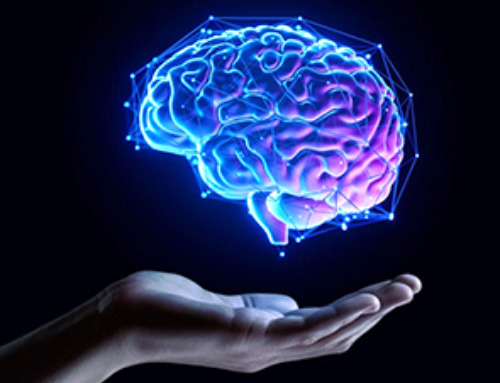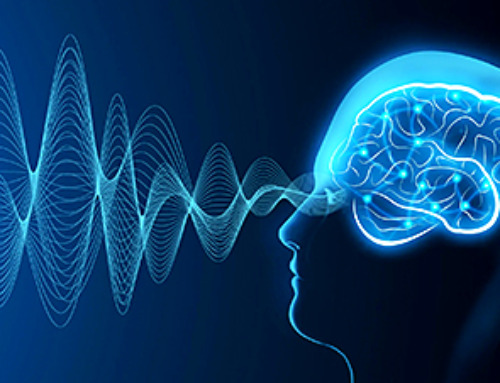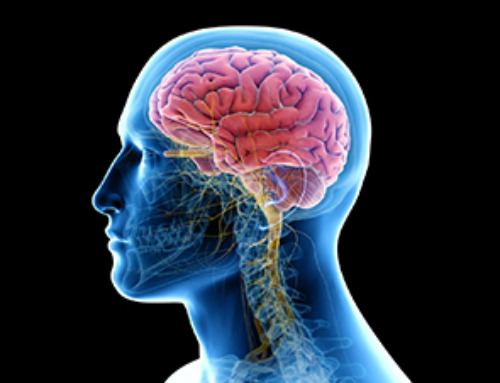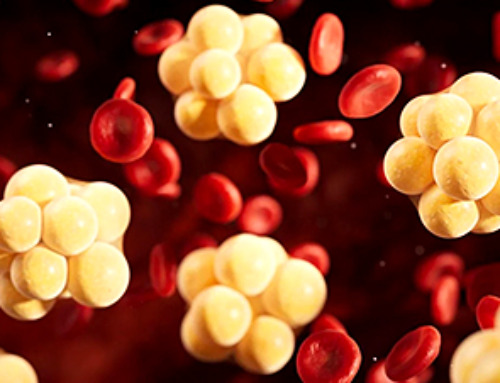Research indicates that while the most severe effects of SARS-CoV-2 were observed in patients with acute COVID-19, individuals who experienced milder cases and were not hospitalized also reported symptoms of memory loss and attention deficits lasting over 18 months post-infection.
Memory loss and attention deficit are common complaints among severe COVID-19 survivors. However, these and other cognitive impairments have also been observed in patients with mild cases more than 18 months after infection, according to a study by researchers at the University of São Paulo (USP) in Brazil.
An article on the study is published in the journal BMC Psychology. The findings highlight the need for more comprehensive rehabilitation to address the enduring cognitive impacts of long COVID, the authors write.
Data collected from 302 volunteers pointed to cognitive impairment in 11.7% of mild patients, 39.2% of moderate patients, and 48.9% of severe patients.
"Although the damage done by the disease in terms of memory loss, attention deficit, and slow processing increases in proportion to its severity, the same problems affect a far from a negligible number of people – around 100 in our study – who had mild or moderate COVID," said Antônio de Pádua Serafim, first author of the article and a professor at the Institute of Psychology (IP-USP).
The results of the study, which was funded by FAPESP, evidence the potential impact of neuroinflammation due to infection by SARS-CoV-2.
"Memory loss and attention deficit are known to be associated with post-intensive care syndrome due to intubation under deep anesthesia. Some of the data analyzed in the study, however, was from patients who didn't require intensive care or didn't even have sufficient symptoms to be hospitalized and nevertheless exhibited memory loss and attention deficit. The findings therefore opened our eyes to the question of neuroinflammation due to COVID-19," Serafim said.
Memory and attention are important cognitive functions that affect people's day-to-day lives. Reflecting this, participants in the study with poor memory and attention test scores reported difficulties with recalling words or performing routine activities, such as forgetting pots on the stove or failing to pick children up from school.
"Hierarchically speaking, attention is the primary function in all mental activity, and this explains why attention deficit has such as huge impact on people's daily lives. High-quality attention is required to think and act in various ways at the same time. Impairment of attention in turn affects memory. In some cases, attentional activity is so dispersed that each new stimulus [or impending activity] dissolves, so that the person can't remember what they were doing. This also affects processing activity, which involves rapid decision-making based on information," he said.
Cognitive rehabilitation
According to Serafim, all the evidence has shown for some time that SARS-CoV-2 can affect the central nervous system as well as the lungs, kidneys, heart, and muscles, but the extent of the damage it may cause is poorly understood. "We don't know if cognitive impairment due to COVID-19 is permanent, and we're currently evaluating ways to intervene in this process," he said.
In partnership with other researchers at USP, Serafim is developing programs to try to mitigate the cognitive losses caused by COVID-19. The aim is to find out whether techniques such as neurostimulation and neurofeedback can attenuate or reserve memory loss and attention deficit.
"Both are non-invasive techniques that aim to improve brain functions by means of neuromodulation, which can stimulate the connections among neurons in the brain [synapses]. We have only case studies so far. For example, in the case of a physician who was in the intensive care unit for 34 days, we conducted a neurofeedback protocol often used to study patients with attention deficit disorder, and he made a good recovery. But that was an isolated case," he said.
"Based on the knowledge we've acquired so far regarding cognitive stimulation and rehabilitation techniques, I believe it may be possible to obtain an improvement in neural connectivity by means of brain training to stimulate overall cognitive ability. The severe phase of the pandemic is over, but the sequelae persist. So it's not a closed case. Many people were infected, and many have sequelae of this kind. However, we don't have an effective program to intervene not only in the emotional aspects but also in the cognitive difficulties resulting from COVID-19."
Reference: "Cognitive performance of post-covid patients in mild, moderate, and severe clinical situations" by Antonio de Pádua Serafim, Fabiana Saffi, Amanda Rafaella A. Soares, Alessandra Mara Morita, Mariana Medeiros Assed, Sandro de Toledo, Cristiana C. A. Rocca and Ricardo S. S. Durães, 26 April 2024, BMC Psychology.
DOI: 10.1186/s40359-024-01740-7
The study was funded by the São Paulo Research Foundation.
News
Smaller Than a Grain of Salt: Engineers Create the World’s Tiniest Wireless Brain Implant
A salt-grain-sized neural implant can record and transmit brain activity wirelessly for extended periods. Researchers at Cornell University, working with collaborators, have created an extremely small neural implant that can sit on a grain of [...]
Scientists Develop a New Way To See Inside the Human Body Using 3D Color Imaging
A newly developed imaging method blends ultrasound and photoacoustics to capture both tissue structure and blood-vessel function in 3D. By blending two powerful imaging methods, researchers from Caltech and USC have developed a new way to [...]
Brain waves could help paralyzed patients move again
People with spinal cord injuries often lose the ability to move their arms or legs. In many cases, the nerves in the limbs remain healthy, and the brain continues to function normally. The loss of [...]
Scientists Discover a New “Cleanup Hub” Inside the Human Brain
A newly identified lymphatic drainage pathway along the middle meningeal artery reveals how the human brain clears waste. How does the brain clear away waste? This task is handled by the brain’s lymphatic drainage [...]
New Drug Slashes Dangerous Blood Fats by Nearly 40% in First Human Trial
Scientists have found a way to fine-tune a central fat-control pathway in the liver, reducing harmful blood triglycerides while preserving beneficial cholesterol functions. When we eat, the body turns surplus calories into molecules called [...]
A Simple Brain Scan May Help Restore Movement After Paralysis
A brain cap and smart algorithms may one day help paralyzed patients turn thought into movement—no surgery required. People with spinal cord injuries often experience partial or complete loss of movement in their arms [...]
Plant Discovery Could Transform How Medicines Are Made
Scientists have uncovered an unexpected way plants make powerful chemicals, revealing hidden biological connections that could transform how medicines are discovered and produced. Plants produce protective chemicals called alkaloids as part of their natural [...]
Scientists Develop IV Therapy That Repairs the Brain After Stroke
New nanomaterial passes the blood-brain barrier to reduce damaging inflammation after the most common form of stroke. When someone experiences a stroke, doctors must quickly restore blood flow to the brain to prevent death. [...]
Analyzing Darwin’s specimens without opening 200-year-old jars
Scientists have successfully analyzed Charles Darwin's original specimens from his HMS Beagle voyage (1831 to 1836) to the Galapagos Islands. Remarkably, the specimens have been analyzed without opening their 200-year-old preservation jars. Examining 46 [...]
Scientists discover natural ‘brake’ that could stop harmful inflammation
Researchers at University College London (UCL) have uncovered a key mechanism that helps the body switch off inflammation—a breakthrough that could lead to new treatments for chronic diseases affecting millions worldwide. Inflammation is the [...]
A Forgotten Molecule Could Revive Failing Antifungal Drugs and Save Millions of Lives
Scientists have uncovered a way to make existing antifungal drugs work again against deadly, drug-resistant fungi. Fungal infections claim millions of lives worldwide each year, and current medical treatments are failing to keep pace. [...]
Scientists Trap Thyme’s Healing Power in Tiny Capsules
A new micro-encapsulation breakthrough could turn thyme’s powerful health benefits into safer, smarter nanodoses. Thyme extract is often praised for its wide range of health benefits, giving it a reputation as a natural medicinal [...]
Scientists Develop Spray-On Powder That Instantly Seals Life-Threatening Wounds
KAIST scientists have created a fast-acting, stable powder hemostat that stops bleeding in one second and could significantly improve survival in combat and emergency medicine. Severe blood loss remains the primary cause of death from [...]
Oceans Are Struggling To Absorb Carbon As Microplastics Flood Their Waters
New research points to an unexpected way plastic pollution may be influencing Earth’s climate system. A recent study suggests that microscopic plastic pollution is reducing the ocean’s capacity to take in carbon dioxide, a [...]
Molecular Manufacturing: The Future of Nanomedicine – New book from Frank Boehm
This book explores the revolutionary potential of atomically precise manufacturing technologies to transform global healthcare, as well as practically every other sector across society. This forward-thinking volume examines how envisaged Factory@Home systems might enable the cost-effective [...]
New Book! NanoMedical Brain/Cloud Interface – Explorations and Implications
New book from Frank Boehm, NanoappsMedical Inc Founder: This book explores the future hypothetical possibility that the cerebral cortex of the human brain might be seamlessly, safely, and securely connected with the Cloud via [...]





















